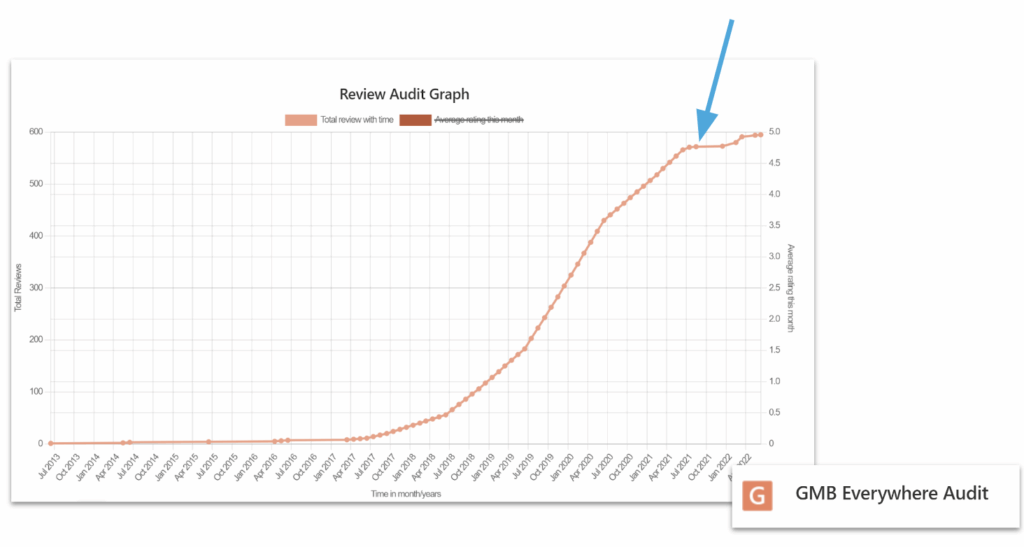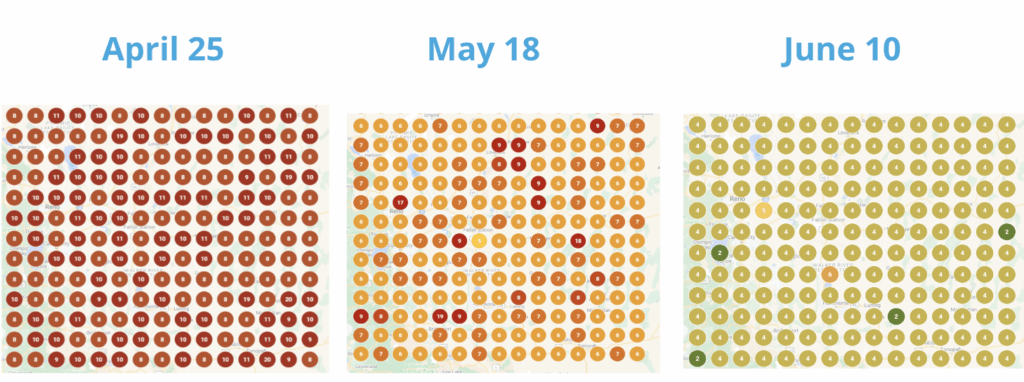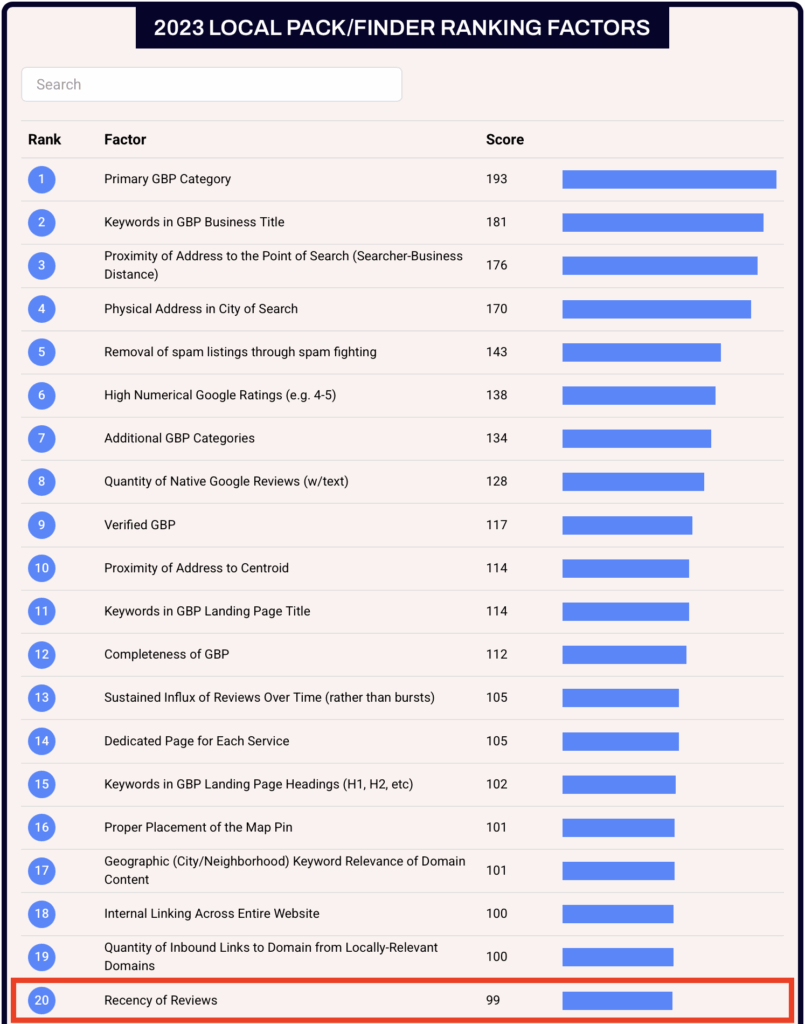🤓 The 2026 Local Search Ranking Factors are here!! Check out the report!
🤓 The 2026 Local Search Ranking Factors are here!! Check out the report!



If your business isn’t getting new reviews consistently, your competitors will quietly pull ahead of you in the rankings, and you probably won’t even notice.
Google likes to see that a business is active, and a steady stream of incoming reviews proves that you’re active better than anything. The moment you stop getting new reviews, you’re going to see your local rankings start to slip.
A better question is, how often are your top competitors getting new reviews?
If the answer is twice a month, you should also aim for that, plus 1.
A common mistake I see businesses make is sending out review requests in bursts (say, every six months). They blast out requests to hundreds of customers all at once, get a bunch of new reviews, and then don’t get any new reviews again for another 6 months. That’s no good.
The best strategy is making review requests part of your ongoing daily local SEO work, so that you get new reviews coming in on a regular basis.
This method works for two reasons:
Joy Hawkins posted an excellent case study in January 2023 showing how their clients’ rankings dropped when they stopped getting new reviews.

When the owner was rewarding staff for asking customers for reviews, they got a steady influx of new reviews and better rankings. When they stopped offering the reward, reviews slowed down and rankings dropped. And when the owner started rewarding staff again and new reviews started coming in, their rankings shot right back up:

There was a direct correlation between the presence of new reviews and the business’s rankings: new reviews = better rankings; no new reviews = worse rankings.
✍️ Note: While incentivizing customers to leave you a review is against Google’s guidelines, incentivizing your staff to ask customers for reviews is allowed.
My response: If you ask every customer for a review, your ratio of positive to negative reviews should be at least 30 to 1. If you never ask, however, you can expect to only get reviews when people are unhappy.
And here’s something that might surprise you: getting a negative review is actually better than getting no new reviews at all. Review recency will increase your rankings regardless of whether the new review is positive or negative.
In the 2023 Local Search Ranking Factors, Review Recency ranks as the #20th most valuable local ranking factor.

However, I think Google has cranked the dial on this factor. I’d put review recency in my top 5 most important ranking factors of 2025.
Your 3 big takeaways here are:
Whitespark provides powerful software and expert services to help businesses and agencies drive more leads through local search.
Founded in 2005 in Edmonton, Alberta, Canada, we initially offered web design and SEO services to local businesses. While we still work closely with many clients locally, we have successfully grown over the past 20 years to support over 100,000 enterprises, agencies, and small businesses globally with our cutting-edge software and services.